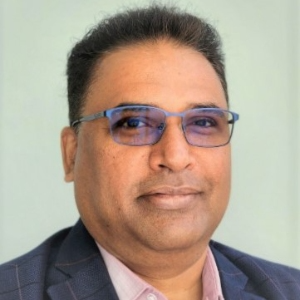Title : Be Aware of Involuntary Emotional Expressive Disorder- A neurological syndrome, not a mood disorder
Abstract:
Objective: To increase awareness of and index of clinical suspicion for Involuntary Emotional Expressive Disorder (IEED) as a differential diagnosis in patients affected with either involuntary laughter or crying variants (or both), not only in cases of stroke and traumatic brain injury where it largely manifests, but also in conditions affecting structural brain changes such as multiple sclerosis, and transient ischaemic attacks and other neurological conditions such as Parkinson’s disease (cases where diaschisis has been implicated), in order to facilitate appropriate and adequate treatment of IEED.
Background: Accurate diagnosis and appropriate treatment of IEED continue to elude clinicians. Symptoms associated with IEED (namely involuntary, inappropriate episodes of laughing or crying without emotional stimuli), are often confused with mood disorders such as depression and bipolar disease because of the complexity of symptom manifestation and socio-behavioural associations with these manifestations precluding the link to the involuntary expressive motor nature of the condition, rather than mood.
It is crucial that patients with IEED are correctly diagnosed and treated to improve their quality of life as they are debilitated by embarrassment and withdraw socially; they present a burden to carers and family members.
Methods: Two cases presented with either variant were diagnosed with IEED through a series of assessment approaches comprising thorough history-taking, including social history in the presence of a family member/carer, and use of appropriate assessment tools as required, such as the CNS-Liability scale. A strong index of clinical suspicion played a decisive role in one case.
Results: The patient who manifested the crying variant sustained a left striato-capsular infarction resulting in right hemiparesis, expressive dysphasia, dysarthria, and oropharyngeal dysphagia. MRI of the brain showed left capsular syndrome involving deep branches of left middle cerebral artery and left caudate infarct along with right fronto-parietal-occipital infarct.
The patient who manifested the laughing variant was diagnosed with grade 4 sub-arachnoid haemorrhage with right arterio-venous malformation rupture.
A selective serotonin reuptake inhibitor (SSRI) was used to treat both variants of IEED with success. Success was seen in the reduction of symptoms (SSRI effective 1 week post commencement for crying, 2 weeks for laughter), and in increased interaction with friends and family, and return to social activities.
The patient with laughing variant had scored 19/40 on the CNS-Liability scale before SSRI, and 7/40 approx. 5 weeks after he started on SSRI. An appreciable reduction in laughter episodes was seen 2 weeks after medication commencement.
Conclusions: There is a pressing need for increased understanding and awareness leading to logical assessment strategies to distinguish between mood and the clinical, organic disorder of affect that is IEED. A sound index of clinical suspicion must be added to the repertoire of differential diagnoses of similar presentations when conditions affecting the brain are involved, as the theory of diaschisis may play a part in unusual cases.




